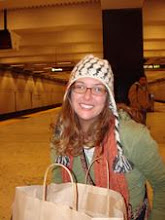Today was another exhausting day as a researcher. I seem to ask the same questions rephrased over and over again and manage to illicit varied, irrelevant responses. Information seems to change day by day, person to person. Each stakeholder has a different title and definition for inclusive education. After many exhausting visits and interviews, I learned that although we are speaking English, we are not speaking the same language. Even the differences between American English and British English add to the mental effort needed to express your thoughts clearly. Selecting and phrasing words can be quite tedious. Before we can move forward with promoting inclusive education, we must all begin speaking a common language.
 Gum Primary School Grade 3 Class
Gum Primary School Grade 3 ClassIn 1993, PNG adopted the National Special Education policy. Now 15 years later, most educators including the senior staff at the provincial department have not received any training on the policy. How are teachers going to receive support on mainstreaming efforts when the Director of the Provincial Department views inclusive education as simply “providing for those with physical disabilities?” Most persons holding high positions within the educational disability sector have limited qualifications or experience in either education or disability. The director of the Creative Self Help Center is a banker; the Chairman of its board of directors is a dentist. The teachers of the center and the lecturers of the teachers college received most of their trainings on special education from in-services held by NGOs. Divine Word University, located here in Madang, offers a BA in Special Education. Why are these highly qualified persons not filling these positions?
I have learned several key cultural factors that will have effects on my research. Sharing information is not valued in PNG. Knowledge is power and power is not shared. When teachers attend workshops it is intended that they return to their respective clusters and hold in-services on the information they have received. Instead, they keep this information stacked on their desks as a sign of power. Culturally, telling stories or “tokstori” is very important. I have found that providing case studies and elaborating on real life examples helps me to talk their language.

Rempi Primary School Office
Next step……locate a copy of the National Special Education Policy and find a definition of inclusive education.







No comments:
Post a Comment